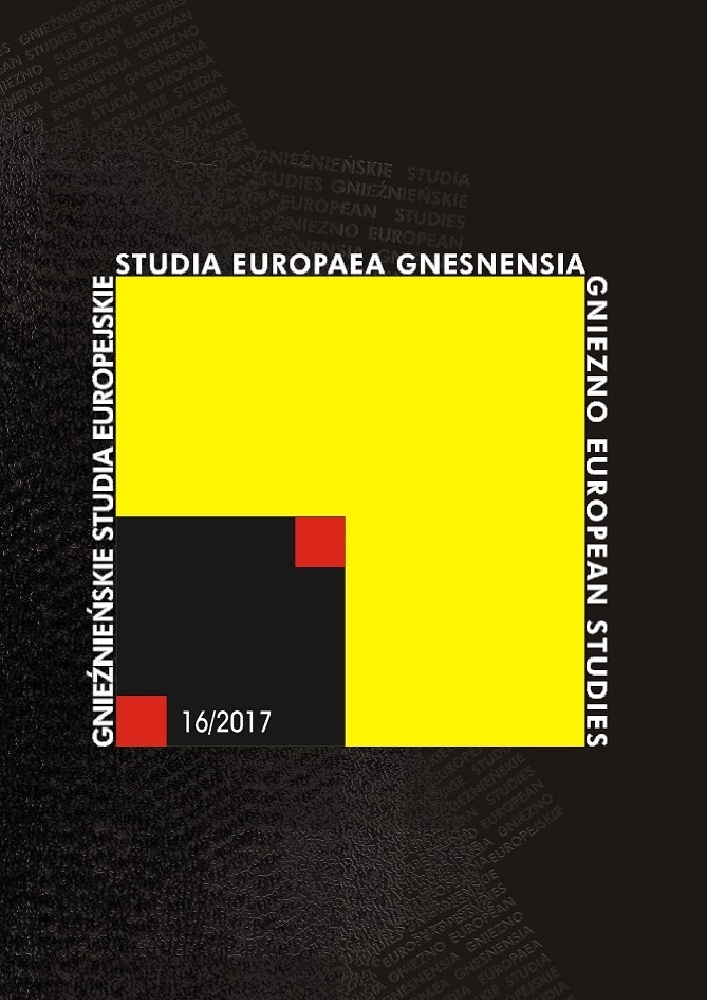Abstract
The present paper is a publication of a new portorium inscription found in one of the late Roman loess pits in the courtyard of the principia (headquarters building) of the legio I Italica and testifying to the existence of the station of the great Illyrian customs district at Novae. The stone bears a dedication to Numen Augusti and Genius portorii and was set up by two servi vilici from the station staff on behalf of G. Iulius Eutyches, the conductor of the Illyrian customs district. The author of the paper dates the stone to AD 169-175 and tries to localise the station near the eastern gate of the legionary fortress. The critical context of the publication includes the findspot of the inscription, topography of the area situated directly to the east of the fortress, location of the Roman landing place and finally also the scene XXXV of the Trajan’s column representing a fortress on the Danube bank which can be identified with Novae.
Literaturhinweise
ANRW – Aufstieg und Niedergang der Römischen Welt
IScM – Inscriptiones Scythiae Minoris
IGL Novae – J. Kolendo, V. Božilova (Hg.), Inscriptions grecques et latines de Novae (Mésie Inférieure), Bordeaux 1997
RE – Real-Encyclopädie der klassischen Altertumswissenschaft, Stuttgart 1894-
Fenechiu C., La notion de numen dans les textes littéraires et épigraphiques, Cluj-Napoca 2008.
Gerov B., Zur epigraphischen Dokumentation des publicum portorii Illyrici et ripae Thraciae, Epigraphica 42, 1980, S. 119-130.
Gudea N., Porolissum. Un complex daco-roman la marginea de nord a imperiului roman, II, Vama romană. Monografie arheologică. Contribuţii la cunoaşterea sistemului vamal din provinciile dacice, Cluj-Napoca 1996.
Kritzinger P., Das römische Zollsystem bis in das 3. Jh. n.Chr., [in:] P. Kritzinger et al. (Hg.), Studien zum römischen Zollwesen, Duisburg 2015, S. 11-56.
Kritzinger P., Was Bleisiegel über das römische Zollwesen aussagen, [in:] P. Kritzinger et al., Studien zum römischen Zollwesen, Duisburg 2015, S. 195-228.
de Laet S., Portorium. Étude sur l’organisation douanière chez les Romains, surtout à l’époque du Haut-Empire, Brügge 1941.
Łajtar A., A Newly Discovered Greek Inscription at Novae (Moesia inferior) Associated with pastus militum, Tyche. Beiträge zur Alten Geschichte, Papyrologie und Epigraphik 28, 2013, S. 97-111.
Matz A.S., Die stationes des gallischen Zollbezirkes aus archäologischer Sicht: im Westen nichts neues? – eine kurze Bestandsaufnahme, [in:] P. Kritzinger et al., Studien zum römischen Zollwesen, Duisburg 2015, S. 243-252.
Mrozewicz L., Les plombs de Novae, Archeologia 32, 1981, S. 79-84.
Nelis-Clément J., Tout en bas de l’empire. Les stations, lieux de contrôle et de représentation du pouvoir, [in:] J. France, J. Nelis-Clément (Hg.), La statio. Archéologie d’un lieu de pouvoir dans l’empire romain, Bordeaux 2014, S. 1-167.
Nesselhauf H., Publicum portorii Illyrici utriusque et ripae Thraciae, Epigraphica 1, 1939, S. 331-338.
Ørsted P., Roman Imperial Economy and Romanization. A Study in Roman Imperial Administration and the Public Lease System in the Danubian Provinces from the First to the Third Century A.D., København 1985.
Petersen E., Trajans dakische Kriege, Leipzig 1899.
Piso I., Fasti Provinciae Daciae II. Die ritterlichen Amtsträger, Bonn 2014.
Piso I., Opreanu C.H., Deac D., Das Heiligtum der Zollstation von Porolissum, Zeitschrift für Papyrologie und Epigraphik 200, 2016, S. 544-548.
Pötscher W., „Numen” und „numen Augusti”, ANRW 2, 16, 1, 1978, S. 380-392.
Recław J., Lead Plombs from Fortress of legio I Italica. Novae, Moesia inferior, [in:] A. Morillo et al. (Hg.), Limes XX. XX congreso internacional de estudios sobre la frontiera romana. Léon (España), Septiembre, 2006, Madrid 2009, S. 1560-1568.
Sarnowski T., Zur Truppengeschichte der Dakerkriege Trajans. Die Bonner legio I Minervia und Legionslager Novae, Bonner Jahrbücher 65, 1987, S. 109-122.
Sarnowski T., Niedermoesien während der Dakerkriege Domitians und Traians. Bemerkungen zu K. Strobel, Die Donaukriege Domitians, Bonn 1989, Eos 80, 1992, S. 153-155.
Sarnowski T., O datowaniu dowództwa L. Juliusza Lucilianusa nad legionem I Italskim, [in:] L. Mrozewicz, K. Ilski (Hg.), Studia Moesiaca II, Poznań 1994, S. 24-27.
Sarnowski T., Die römische Anlegestelle von Novae in Moesia inferior, [in:] P. Petrović (Hg.), Roman Limes on the Middle and Lower Danube, Beograd 1996, S. 195-203.
Sarnowski T. et al., Novae. An Archaeological Guide to a Roman Legionary Fortress and Early Byzantine Town on the Lower Danube (Bulgaria), Warszawa 2012.
Sarnowski T., In medio castrorum legionis I Italicae at Novae. Preserved Remains, 3D Virtual Modelling and Full-size Visualisation on the Original Site, [in:] Proceedings of the XXIIIrd Limes Congress (forthcoming).
Schleicher F., Der römische Zoll in der Spätantike, [in:] P. Kritzinger et al., Studien zum römischen Zollwesen, Duisburg 2015, S. 57-88.
Strobel K., Anmerkungen zur Truppengeschichte des Donauraumes in der hohen Kaiserzeit, I, Die neuen Ziegelstempel der Legio I Minervia aus dem Lager der Legio I Italica in Novae in Moesia Inferior, Klio 70, 1988, S. 501-511.
Tomas A., Inter Moesos et Thraces. The Rural Hinterland of Novae in Lower Moesia (1st-6th Centuries AD), Oxford 2016.
Vittinghoff F., s.v. Portorium, RE XXII 1, 1953, S. 346-399.
Zimmermann K., Zöllner im Illyricum: Job oder Beruf?, [in:] P. Kritzinger et al., Studien zum römischen Zollwesen, Duisburg 2015, S. 142-154.
